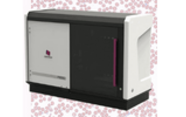Important News for Pathologists
U.S. Full Prescribing Information: OPDIVO YERVOY
Medication Guide: OPDIVO YERVOY
*Two cycles of platinum-doublet chemo.1
INDICATIONS
OPDIVO® (nivolumab), in combination with YERVOY® (ipilimumab), is indicated for the first-line treatment of adult patients with metastatic non-small cell lung cancer (NSCLC) whose tumors express PD-L1 (≥1%) as determined by an FDA-approved test, with no EGFR or ALK genomic tumor aberrations.
OPDIVO, in combination with YERVOY and 2 cycles of platinum-doublet chemotherapy, is indicated for the first-line treatment of adult patients with metastatic or recurrent non-small cell lung cancer (NSCLC), with no EGFR or ALK genomic tumor aberrations.
OPDIVO is indicated for the treatment of patients with metastatic non-small cell lung cancer (NSCLC) with progression on or after platinum-based chemotherapy. Patients with EGFR or ALK genomic tumor aberrations should have disease progression on FDA-approved therapy for these aberrations prior to receiving OPDIVO.
OPDIVO (10 mg/mL) and YERVOY (5 mg/mL) are injections for intravenous (IV) use.
1L=first-line; ALK=anaplastic lymphoma kinase; EGFR=epidermal growth factor receptor; mNSCLC=metastatic non-small cell lung cancer; NSCLC=non-small cell lung cancer; PD-L1=programmed death-ligand 1; r/m NSCLC=recurrent or metastatic non-small cell lung cancer.
SELECT IMPORTANT SAFETY INFORMATION
Summary of Warnings and Precautions
OPDIVO is associated with the following Warnings and Precautions including immune-mediated: pneumonitis, colitis, hepatitis, endocrinopathies, nephritis and renal dysfunction, skin adverse reactions, encephalitis, other adverse reactions; infusion-related reactions; complications of allogeneic hematopoietic stem cell transplantation (HSCT); embryo-fetal toxicity; and increased mortality in patients with multiple myeloma when OPDIVO is added to thalidomide analogue and dexamethasone, which is not recommended outside of controlled clinical trials. YERVOY is associated with the following Warnings and Precautions: severe and fatal immune-mediated adverse reactions, infusion-related reactions, complications of allogeneic hematopoietic stem cell transplant after YERVOY, embryo-fetal toxicity and risks associated when administered in combination with OPDIVO.
Please see additional Important Safety Information for OPDIVO and YERVOY, including U.S. Full Prescribing Information for OPDIVO and YERVOY below.
Specify the eligible OPDIVO or OPDIVO + YERVOY regimens in your pathology report according to FDA-approved indications1,2
†OPDIVO 3 mg/kg with YERVOY 1 mg/kg.
‡Determination of PD-L1 expression in NSCLC is available at: www.fda.gov/CompanionDiagnostics.
§OPDIVO 3 mg/kg with YERVOY 1 mg/kg + limited chemotherapy.
‖Testing not required.
¶OPDIVO 240 mg IV infusion q2w OR 480 mg IV infusion q4w.
2L=second-line; IV=intravenous; q2w=every 2 weeks; q4w=every 4 weeks.
Learn more about OPDIVO + YERVOY–based combinations for 1L mNSCLC
ADDITIONAL IMPORTANT SAFETY INFORMATION
Severe and Fatal Immune-Mediated Adverse Reactions
Immune-mediated adverse reactions listed herein may not be inclusive of all possible severe and fatal immune-mediated adverse reactions.
Immune-mediated adverse reactions, which may be severe or fatal, can occur in any organ system or tissue. While immune-mediated adverse reactions usually manifest during treatment, they can also occur at any time after starting or discontinuing YERVOY. Early identification and management are essential to ensure safe use of YERVOY. Monitor for signs and symptoms that may be clinical manifestations of underlying immune-mediated adverse reactions. Evaluate clinical chemistries including liver enzymes, creatinine, adrenocorticotropic hormone (ACTH) level, and thyroid function at baseline and before each dose. Institute medical management promptly, including specialty consultation as appropriate.
Withhold or permanently discontinue YERVOY depending on severity. In general, if YERVOY requires interruption or discontinuation, administer systemic corticosteroid therapy (1 to 2 mg/kg/day prednisone or equivalent) until improvement to Grade 1 or less followed by corticosteroid taper for at least 1 month. Consider administration of other systemic immunosuppressants in patients whose immune-mediated adverse reaction is not controlled with corticosteroid therapy. Institute hormone replacement therapy for endocrinopathies as warranted.
Immune-Mediated Pneumonitis
OPDIVO can cause immune-mediated pneumonitis. Fatal cases have been reported. Monitor patients for signs with radiographic imaging and for symptoms of pneumonitis. Administer corticosteroids for Grade 2 or more severe pneumonitis. Permanently discontinue for Grade 3 or 4 and withhold until resolution for Grade 2. In patients receiving OPDIVO monotherapy, fatal cases of immune-mediated pneumonitis have occurred. Immune-mediated pneumonitis occurred in 3.1% (61/1994) of patients. In NSCLC patients receiving OPDIVO 3 mg/kg with YERVOY 1 mg/kg, immune-mediated pneumonitis occurred in 9% (50/576) of patients, including Grade 4 (0.5%), Grade 3 (3.5%), and Grade 2 (4.0%) immune-mediated pneumonitis. Four patients (0.7%) died due to pneumonitis. The incidence and severity of immune-mediated pneumonitis in patients with NSCLC treated with OPDIVO 360 mg every 3 weeks in combination with YERVOY 1 mg/kg every 6 weeks and 2 cycles of platinum-doublet chemotherapy were comparable to treatment with OPDIVO in combination with YERVOY only.
Immune-Mediated Colitis
OPDIVO can cause immune-mediated colitis. Monitor patients for signs and symptoms of colitis. Administer corticosteroids for Grade 2 (of more than 5 days duration), 3, or 4 colitis. Withhold OPDIVO monotherapy for Grade 2 or 3 and permanently discontinue for Grade 4 or recurrent colitis upon re-initiation of OPDIVO. When administered with YERVOY, withhold OPDIVO and YERVOY for Grade 2 and permanently discontinue for Grade 3 or 4 or recurrent colitis. In patients receiving OPDIVO monotherapy, immune-mediated colitis occurred in 2.9% (58/1994) of patients.
Cytomegalovirus (CMV) infection/reactivation has been reported in patients with corticosteroid-refractory immune-mediated colitis. In cases of corticosteroid-refractory colitis, consider repeating infectious workup to exclude alternative etiologies. Addition of an alternative immunosuppressive agent to the corticosteroid therapy, or replacement of the corticosteroid therapy, should be considered in corticosteroid-refractory immune-mediated colitis if other causes are excluded.
Immune-Mediated Hepatitis
OPDIVO can cause immune-mediated hepatitis. Monitor patients for abnormal liver tests prior to and periodically during treatment. Administer corticosteroids for Grade 2 or greater transaminase elevations. Withhold OPDIVO for Grade 2 and permanently discontinue OPDIVO for Grade 3 or 4. In patients receiving OPDIVO monotherapy, immune-mediated hepatitis occurred in 1.8% (35/1994) of patients.
Immune-Mediated Endocrinopathies
OPDIVO can cause immune-mediated hypophysitis, immune-mediated adrenal insufficiency, autoimmune thyroid disorders, and Type 1 diabetes mellitus. Monitor patients for signs and symptoms of hypophysitis, signs and symptoms of adrenal insufficiency, thyroid function prior to and periodically during treatment, and hyperglycemia. Withhold for Grades 2, 3, or 4 endocrinopathies if not clinically stable. Administer hormone replacement as clinically indicated and corticosteroids for Grade 2 or greater hypophysitis. Withhold for Grade 2 or 3 and permanently discontinue for Grade 4 hypophysitis. Administer corticosteroids for Grade 3 or 4 adrenal insufficiency. Withhold for Grade 2 and permanently discontinue for Grade 3 or 4 adrenal insufficiency. Administer hormone-replacement therapy for hypothyroidism. Initiate medical management for control of hyperthyroidism. Withhold OPDIVO for Grade 3 and permanently discontinue for Grade 4 hyperglycemia.
In patients receiving OPDIVO monotherapy, hypophysitis occurred in 0.6% (12/1994) of patients. In patients receiving OPDIVO monotherapy, adrenal insufficiency occurred in 1% (20/1994) of patients. In patients receiving OPDIVO monotherapy, hypothyroidism or thyroiditis resulting in hypothyroidism occurred in 9% (171/1994) of patients. Hyperthyroidism occurred in 2.7% (54/1994) of patients receiving OPDIVO monotherapy. In patients receiving OPDIVO monotherapy, diabetes occurred in 0.9% (17/1994) of patients.
Immune-Mediated Nephritis and Renal Dysfunction
OPDIVO can cause immune-mediated nephritis. Monitor patients for elevated serum creatinine prior to and periodically during treatment. Administer corticosteroids for Grades 2-4 increased serum creatinine. Withhold OPDIVO for Grade 2 or 3 and permanently discontinue for Grade 4 increased serum creatinine. In patients receiving OPDIVO monotherapy, immune-mediated nephritis and renal dysfunction occurred in 1.2% (23/1994) of patients.
Immune-Mediated Skin and Dermatologic Adverse Reactions
OPDIVO can cause immune-mediated rash, including Stevens-Johnson syndrome (SJS) and toxic epidermal necrolysis (TEN), some cases with fatal outcome. Administer corticosteroids for Grade 3 or 4 rash. Withhold for Grade 3 and permanently discontinue for Grade 4 rash. For symptoms or signs of SJS or TEN, withhold OPDIVO and refer the patient for specialized care for assessment and treatment; if confirmed, permanently discontinue. In patients receiving OPDIVO monotherapy, immune-mediated rash occurred in 9% (171/1994) of patients.
YERVOY can cause immune-mediated rash or dermatitis, including bullous and exfoliative dermatitis, Stevens Johnson syndrome (SJS) and toxic epidermal necrolysis (TEN). Topical emollients and/or topical corticosteroids may be adequate to treat mild to moderate non-bullous exfoliative rashes. Withhold YERVOY until specialist assessment for Grade 2 and permanently discontinue for Grade 3 or 4 exfoliative or bullous dermatologic conditions.
Immune-Mediated Encephalitis
OPDIVO can cause immune-mediated encephalitis. Evaluation of patients with neurologic symptoms may include, but not be limited to, consultation with a neurologist, brain MRI, and lumbar puncture. Withhold OPDIVO in patients with new-onset moderate to severe neurologic signs or symptoms and evaluate to rule out other causes. If other etiologies are ruled out, administer corticosteroids and permanently discontinue OPDIVO for immune-mediated encephalitis. In patients receiving OPDIVO monotherapy, encephalitis occurred in 0.2% (3/1994) of patients. Fatal limbic encephalitis occurred in one patient after 7.2 months of exposure despite discontinuation of OPDIVO and administration of corticosteroids.
Other Immune-Mediated Adverse Reactions
Based on the severity of the adverse reaction, permanently discontinue or withhold OPDIVO, administer high-dose corticosteroids, and, if appropriate, initiate hormone-replacement therapy. Dose modifications for YERVOY for adverse reactions that require management different from these general guidelines are summarized as follows. Withhold for Grade 2 and permanently discontinue YERVOY for Grade 3 or 4 neurological toxicities. Withhold for Grade 2 and permanently discontinue YERVOY for Grade 3 or 4 myocarditis. Permanently discontinue YERVOY for Grade 2, 3, or 4 ophthalmologic adverse reactions that do not improve to Grade 1 within 2 weeks while receiving topical therapy OR that require systemic therapy. Across clinical trials of OPDIVO monotherapy or in combination with YERVOY, the following clinically significant immune-mediated adverse reactions, some with fatal outcome, occurred in <1.0% of patients receiving OPDIVO: myocarditis, rhabdomyolysis, myositis, uveitis, iritis, pancreatitis, facial and abducens nerve paresis, demyelination, polymyalgia rheumatica, autoimmune neuropathy, Guillain-Barré syndrome, hypopituitarism, systemic inflammatory response syndrome, gastritis, duodenitis, sarcoidosis, histiocytic necrotizing lymphadenitis (Kikuchi lymphadenitis), motor dysfunction, vasculitis, aplastic anemia, pericarditis, and myasthenic syndrome. In addition to the immune-mediated adverse reactions listed above, across clinical trials of YERVOY monotherapy or in combination with OPDIVO, the following clinically significant immune-mediated adverse reactions, some with fatal outcome, occurred in <1% of patients unless otherwise specified: autoimmune neuropathy (2%), meningitis, encephalitis, myelitis and demyelination, myasthenic syndrome/myasthenia gravis, nerve paresis, angiopathy, temporal arteritis, pancreatitis (1.3%), arthritis, polymyositis, conjunctivitis, cytopenias (2.5%), eosinophilia (2.1%), erythema multiforme, hypersensitivity vasculitis, neurosensory hypoacusis, psoriasis, blepharitis, episcleritis, orbital myositis, and scleritis. Some cases of ocular IMARs have been associated with retinal detachment.
If uveitis occurs in combination with other immune-mediated adverse reactions, consider a Vogt-Koyanagi-Harada-like syndrome, which has been observed in patients receiving OPDIVO and YERVOY and may require treatment with systemic steroids to reduce the risk of permanent vision loss.
Infusion-Related Reactions
OPDIVO can cause severe infusion-related reactions, which have been reported in <1.0% of patients in clinical trials. Discontinue OPDIVO in patients with Grade 3 or 4 infusion-related reactions. Interrupt or slow the rate of infusion in patients with Grade 1 or 2. Severe infusion-related reactions can also occur with YERVOY. Discontinue YERVOY in patients with severe or life-threatening infusion reactions and interrupt or slow the rate of infusion in patients with mild or moderate infusion reactions. In patients receiving OPDIVO monotherapy as a 60-minute infusion, infusion-related reactions occurred in 6.4% (127/1994) of patients. In a separate trial in which patients received OPDIVO monotherapy as a 60-minute infusion or a 30-minute infusion, infusion-related reactions occurred in 2.2% (8/368) and 2.7% (10/369) of patients, respectively. Additionally, 0.5% (2/368) and 1.4% (5/369) of patients, respectively, experienced adverse reactions within 48 hours of infusion that led to dose delay, permanent discontinuation or withholding of OPDIVO.
Complications of Allogeneic Hematopoietic Stem Cell Transplantation
Fatal and other serious complications can occur in patients who receive allogeneic hematopoietic stem cell transplantation (HSCT) before or after being treated with a PD-1 receptor blocking antibody or YERVOY. Transplant-related complications include hyperacute graft-versus-host-disease (GVHD), acute GVHD, chronic GVHD, hepatic veno-occlusive disease (VOD) after reduced intensity conditioning, and steroid-requiring febrile syndrome (without an identified infectious cause). These complications may occur despite intervening therapy between PD-1 or CTLA-4 receptor blockade and allogeneic HSCT.
Follow patients closely for evidence of transplant-related complications and intervene promptly. Consider the benefit versus risks of treatment with a PD-1 receptor blocking antibody or YERVOY prior to or after an allogeneic HSCT.
Embryo-Fetal Toxicity
Based on mechanism of action, OPDIVO and YERVOY can cause fetal harm when administered to a pregnant woman. Advise pregnant women of the potential risk to a fetus. Advise females of reproductive potential to use effective contraception during treatment with OPDIVO or YERVOY and for at least 5 months after the last dose.
Increased Mortality in Patients with Multiple Myeloma when OPDIVO is Added to a Thalidomide Analogue and Dexamethasone
In clinical trials in patients with multiple myeloma, the addition of OPDIVO to a thalidomide analogue plus dexamethasone resulted in increased mortality. Treatment of patients with multiple myeloma with a PD-1 or PD-L1 blocking antibody in combination with a thalidomide analogue plus dexamethasone is not recommended outside of controlled clinical trials.
Lactation
It is not known whether OPDIVO or YERVOY is present in human milk. Because many drugs, including antibodies, are excreted in human milk and because of the potential for serious adverse reactions in nursing infants from OPDIVO or YERVOY, advise women not to breastfeed during treatment and for at least 5 months after the last dose.
Serious Adverse Reactions
In Checkmate 227, serious adverse reactions occurred in 58% of patients (n=576). The most frequent (≥2%) serious adverse reactions were pneumonia, diarrhea/colitis, pneumonitis, hepatitis, pulmonary embolism, adrenal insufficiency, and hypophysitis. Fatal adverse reactions occurred in 1.7% of patients; these included events of pneumonitis (4 patients), myocarditis, acute kidney injury, shock, hyperglycemia, multi-system organ failure, and renal failure. In Checkmate 9LA, serious adverse reactions occurred in 57% of patients (n=358). The most frequent (>2%) serious adverse reactions were pneumonia, diarrhea, febrile neutropenia, anemia, acute kidney injury, musculoskeletal pain, dyspnea, pneumonitis, and respiratory failure. Fatal adverse reactions occurred in 7 (2%) patients, and included hepatic toxicity, acute renal failure, sepsis, pneumonitis, diarrhea with hypokalemia, and massive hemoptysis in the setting of thrombocytopenia. In Checkmate 017 and 057, serious adverse reactions occurred in 46% of patients receiving OPDIVO (n=418). The most frequent serious adverse reactions reported in ≥2% of patients receiving OPDIVO were pneumonia, pulmonary embolism, dyspnea, pyrexia, pleural effusion, pneumonitis, and respiratory failure.
Common Adverse Reactions
In Checkmate 227, the most common (≥20%) adverse reactions were fatigue (44%), rash (34%), decreased appetite (31%), musculoskeletal pain (27%), diarrhea/colitis (26%), dyspnea (26%), cough (23%), hepatitis (21%), nausea (21%), and pruritus (21%). In Checkmate 9LA, the most common (>20%) adverse reactions were fatigue (49%), musculoskeletal pain (39%), nausea (32%), diarrhea (31%), rash (30%), decreased appetite (28%), constipation (21%), and pruritus (21%). In Checkmate 017 and 057, the most common adverse reactions (≥20%) in patients receiving OPDIVO (n=418) were fatigue, musculoskeletal pain, cough, dyspnea, and decreased appetite.
Please see U.S. Full Prescribing Information for OPDIVO and YERVOY.
Checkmate Trials and Patient Populations
Checkmate 227–previously untreated metastatic non-small cell lung cancer, in combination with YERVOY; Checkmate 9LA–previously untreated recurrent or metastatic non-small cell lung cancer in combination with YERVOY and 2 cycles of platinum-doublet chemotherapy by histology; Checkmate 017–second-line treatment of metastatic squamous non-small cell lung cancer; Checkmate 057–second-line treatment of metastatic non-squamous non-small cell lung cancer.
References:
1. OPDIVO [package insert]. Princeton, NJ: Bristol-Myers Squibb Company; 2020.
2. YERVOY [package insert]. Princeton, NJ: Bristol-Myers Squibb Company; 2020.
Legal Notice | Privacy Policy
© 2020 Bristol-Myers Squibb Company. All rights reserved.
OPDIVO®, YERVOY®, and the related logos are registered trademarks of
Bristol-Myers Squibb Company.
7356US2001043-01-01 06/20





















